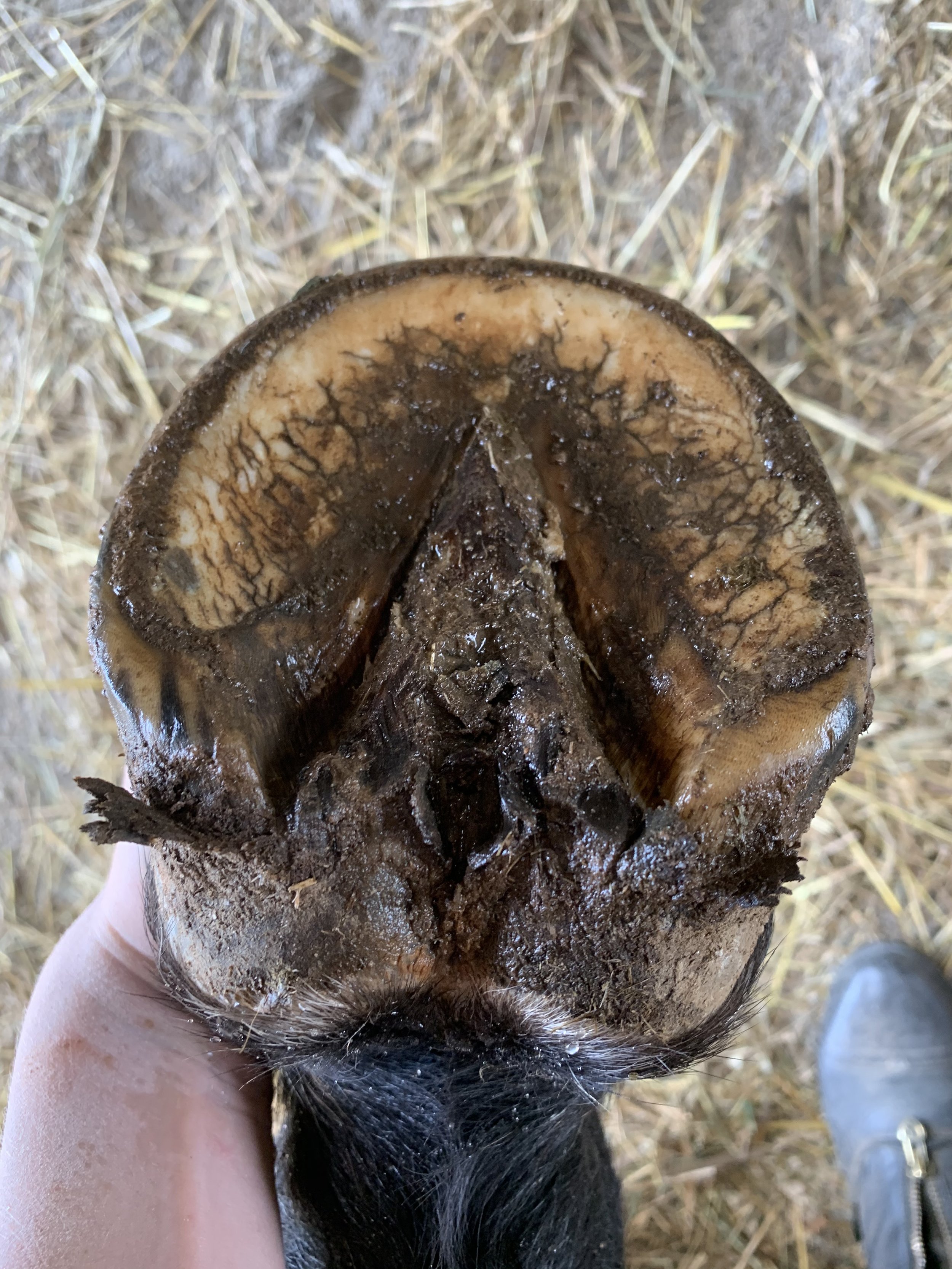Nutrition for Hooves
This often seems foreign to many horse owners but you may want to rethink access to pasture. Many progressive hoof care practitioners actually recommend restricting all access to grass and opting for a dry-lot or even better, a track system, instead of a big beautiful grass field. Horses should still have nearly 24/7 access to slow fed hay/forage.
Depending on what type of hay you are feeding, you might need a certain style net. Alfalfa hay tends to need larger hole openings, whereas grass hays like orchard and timothy can be used with smaller nets. You also don’t necessarily want to start feeding your horse out of a small holed net out of nowhere, if they aren’t used to a net at all. Offer loose and netted hay to begin with so the horse can become accustomed to using the net without frustration. Over time, you can begin to use nets with smaller holes to encourage even slower feeding. Remember - horses are designed to be foragers, not grazers.
Diet & Food Sensitivities:
- Yes, the horses diet plays a HUGE role in hoof health. Just like humans, horses can have food sensitivities. Unfortunately, these food sensitivity symptoms can show up in the feet.
- A large number horses with hoof pain have shown a sensitivity to alfalfa and grass. If this is the case, access to these should be eliminated immediately.
- Excessive amounts of sugar and starch in grass, hay & grain may set the hoof up for sensitivity.
- Certain ingredients in grains, such as soy and wheat, have also been related to hoof sensitivity.
- Another very important consideration to take into account is an unbalanced diet with improper mineral and vitamin ratios including excessive amounts of iron, which inhibits copper and zinc absorption, which is essential to hoof and skin health.
- Consider doing an elimination diet to see if things improve.
- Regardless, you may want to consider other forms of nutritional support for the hoof. See below for some recommended supplements and a link to learn more information.
SUPPLEMENTS:
Many popular hoof supplements, like Farriers Formula, Horseshoers Secret, and others- either contain unnecessary ingredients or do not contain the proper ratios of vitamins, minerals and amino acids that truly support hoof balance.
The best way to create healthy hooves is actually to run a nutrient analysis on your hay, and balance their mineral ratios from there. Most of us, cannot accomplish such a feat. Therefore we turn to the following forage/ration balancers that were formulated to averages in hay.
Top Supplement Choices:
California Trace/Plus
Copper & Zinc
Please see this guide for a thorough breakdown of each supplement.
Quick note on Iron Overload:
Any supplement, or grain, with added iron may inhibit beneficial hoof growth and/or health, especially if you are not increasing the horses copper and zinc levels elsewhere. Iron overload IS a real problem. Most horses are getting more than enough iron in their diets through hay, water, grain and some popular salt & mineral supplements. This is an issue because an overconsumption of iron leads to decreased consumption of copper and zinc - which play a huge role in hoof and skin health.





